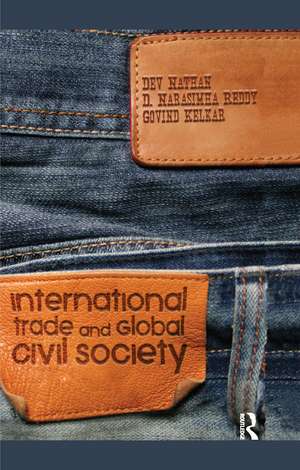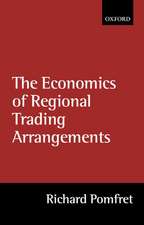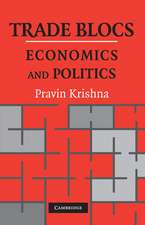International Trade and Global Civil Society
Autor Dev Nathan, D Narasimha Reddy, Govind Kelkaren Limba Engleză Paperback – 25 apr 2019
| Toate formatele și edițiile | Preț | Express |
|---|---|---|
| Paperback (1) | 416.22 lei 6-8 săpt. | |
| Taylor & Francis – 25 apr 2019 | 416.22 lei 6-8 săpt. | |
| Hardback (1) | 1007.36 lei 6-8 săpt. | |
| Taylor & Francis – 24 oct 2008 | 1007.36 lei 6-8 săpt. |
Preț: 416.22 lei
Nou
Puncte Express: 624
Preț estimativ în valută:
79.65€ • 83.05$ • 66.20£
79.65€ • 83.05$ • 66.20£
Carte tipărită la comandă
Livrare economică 20 martie-03 aprilie
Preluare comenzi: 021 569.72.76
Specificații
ISBN-13: 9780367176198
ISBN-10: 036717619X
Pagini: 304
Dimensiuni: 138 x 216 x 17 mm
Greutate: 0.45 kg
Ediția:1
Editura: Taylor & Francis
Colecția Routledge India
Locul publicării:Oxford, United Kingdom
ISBN-10: 036717619X
Pagini: 304
Dimensiuni: 138 x 216 x 17 mm
Greutate: 0.45 kg
Ediția:1
Editura: Taylor & Francis
Colecția Routledge India
Locul publicării:Oxford, United Kingdom
Cuprins
1. Introduction 2. Trade and Welfare 3. Trade Rules 4. Competitive Advantage, National Policy and Global Value Chains 5. Work and Decent Work 6. Women, Trade and Livelihoods 7. Agriculture 8. Commodity Prices 9. Indigenous Peoples and International Trade 10. Trade and the Environment 11. Addressing Crises and Change Conclusion Bibliography Index
Notă biografică
Dev Nathan is Visiting Professor, Institute for Human Development, New Delhi, India.
D Narasimha Reddy is Visiting Professor, Institute for Human Development, New Delhi, India.
Goving Kelkar is Programme Coordinator. UNIFEM, South Asia Office, New Delhi.
D Narasimha Reddy is Visiting Professor, Institute for Human Development, New Delhi, India.
Goving Kelkar is Programme Coordinator. UNIFEM, South Asia Office, New Delhi.
Descriere
This study challenges the dominant tendency of civil society to negate international trade as such. The authors argue that it is necessary to frame differentiated trade rules based on levels of economic development, and also to shift from subsidies to shore up uncompetitive livelihoods to productivity-enhancing investments.Most importantly, the book ends with a case for trade unions, women's organizations and other civil society organizations to imagine and create themselves as being global -- in order to take up the challenge of strengthening global countervailing power to capital.














